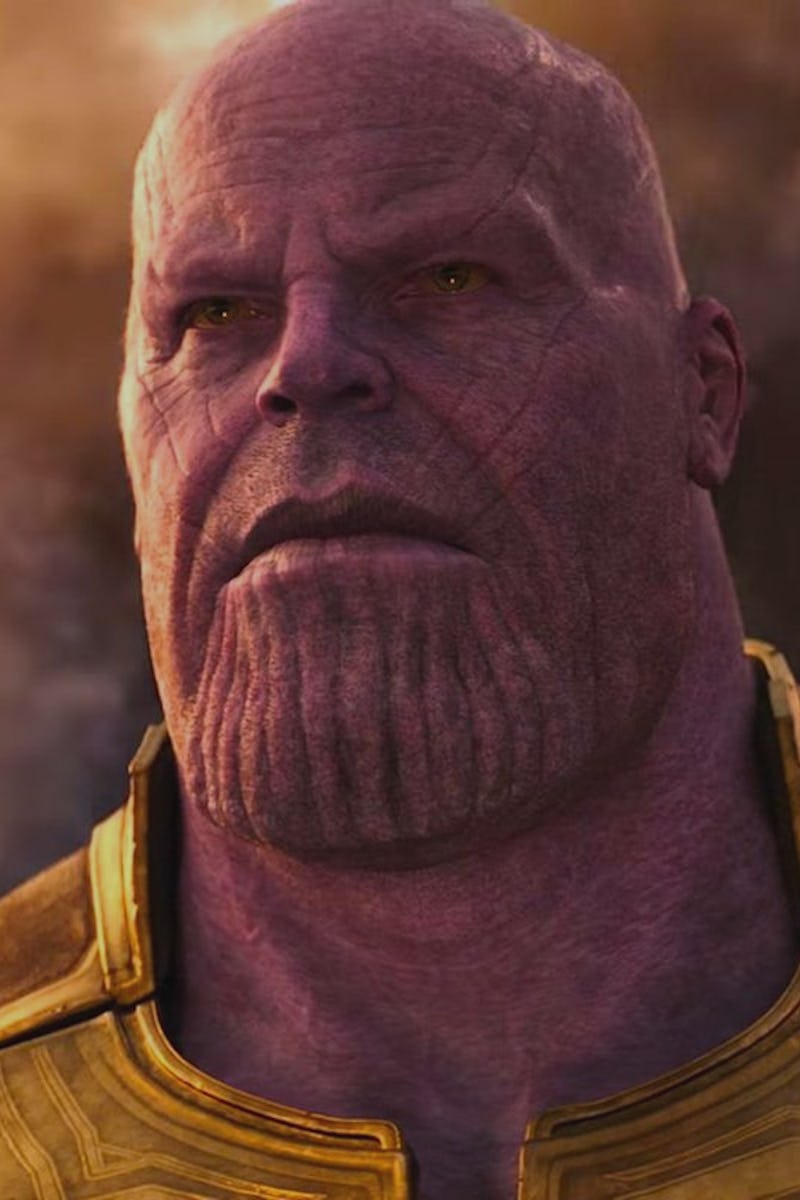
“It’s simple calculus.”
Fascinating ‘Avenger: Endgame’ theory reveals Thanos’ true philosophy
by Dais JohnstonThanos was a villain with a strong motivation. That’s what made him so scary.
He was devoted to a mission he truly believed would fix the world as we knew it. And the case the Mad Titan made was convincing enough to get people saying “Thanos did nothing wrong.” At least, given that, his stance was easy to understand. However, under some amount of philosophical scrutiny, Thanos’ motivations fall apart. The Marvel villain’s vision was either woefully misguided, even for him, or simply not what the character truly intended.
The theory — As noted by Redditor IsaiasRi, the most obvious explanation for Thanos’ actions — that he’s seeking to wipe out half of all life in order to solve overpopulation, first on his homeworld then across the universe — is based on Malthusianism, the theory established by English economist Thomas Robert Malthus. Malthusianism is basically the idea that overpopulation is inevitable because, while food production increases at a linear rate, population rises exponentially. Therefore, as a civilization expands, overpopulation is inevitable.
Thanos’ philosophy and Malthusianism would seem to go hand in hand. (Thanos is even mentioned in the Wikipedia entry for Malthus.) But the theory laid out by the above Redditor points out a huge flaw in this idea. Thanos may want to solve overpopulation but, no matter how many people he eliminates, Malthus’ theory will always remain true. Population, even halved, will still grow exponentially, and food production (even with a head start) will eventually prove insufficient to support the rapidly expanding amount of lifeforms dependent on it.
Was Thanos more of a political scientist than an economist?
But what if Thanos wasn’t inspired by Thomas Malthus, but rather by Thomas Hobbes? Another English philosopher, Hobbes focused mainly on sociology and the idea of the social contract: how people interact and form cultures on a grand level. His most famous work, Leviathan, makes the case for the necessity of a strong central authority in order to unite people in a society and avoid a constant state of war.
Perhaps Thanos’ snap wasn’t a merciful (if ruthless) decimation for the sake of the Earth’s population, but rather an attempt to give the civilizations what they needed to prevent an endless string of unnecessary wars — an Infinity War, if you will.
More than just a Mad Titan, Thanos is a God-King, which is what he believes human society craves to rule it in the future. Thanos may have ultimately sought to unite all populations together as a powerless political body under his own dominion.
The illustration accompanying Leviathan, showing one leader literally made up of his population.
The theory mentions a key quote from Leviathan:
"This is the Generation of that great Leviathan, or rather (to speake more reverently) of that Mortal God, to which we owe under the Immortall God, our peace and defence. For by this Authority, given him by every particular man in the Common-Wealth, he hath the use of so much Power and Strength conferred on him, that by terror thereof, he is inabled to form the wills of them all, to Peace at home, and mutual aid against their enemies abroad."
In other words, any world that exists under a religious god will still crave a mortal god to keep the peace within society. That’s a pretty outdated (if not outright disgusting) idea in a world where democracy is the gold standard for government, but the core ideas of Thomas Hobbes’ theory were first used to support the idea of a monarchy. Such power was ultimately Thanos’ goal, though if we’re to consider him a mortal god, the villain certainly turned out to be all too mortal in the end.
In the end, Thanos’ philosophical inspirations don’t matter to the Marvel Cinematic Universe as a whole, but his motivations do. His struggle was not so much what he was fighting for as it was what the Avengers were fighting against. In battling against Thanos and the Hobbesian royalist thinking he may have knowingly or unknowingly represented, the Avengers proved more than ever that they were truly fighting for truth, justice, and the American way.
Avengers: Endgame is streaming on Disney+.
This article was originally published on